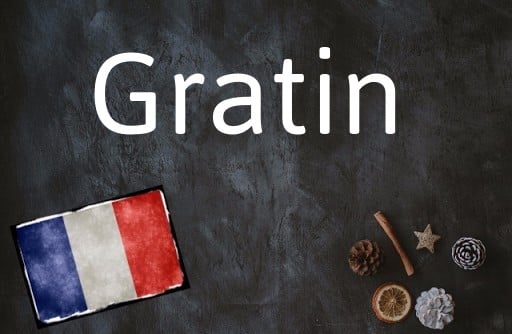Why do I need to know gratin?
So that you don’t get confused when you hear people described as an oven-baked dish.
What does it mean?
A gratin is a culinary speciality usually consisting of potatoes or pasta which are topped with breadcrumbs and grated cheese and baked in the oven.
Interestingly, it’s also a word used to talk about social elites. Le gratin are the people at the very top of the social hierarchy, or the very peak of their profession.
In English, we might similarly use the word ‘upper-crust’ or the phrase ‘cream of the crop’ to talk about those in the highest social and professional circles.
You might also use hear the phrase faire gratin, which is used to refer to someone who is ‘putting on airs’, trying to appear chic or upper-class.
Use it like this
Tout le gratin sera là – Everybody who’s anybody will be there.
C’est le lieu incontournable de tout le gratin parisien – It’s the number-one hotspot for all the Parisian upper crust.
Si le gratin aime notre produit, le succès est assuré – If the cream of the crop like our product, success is guaranteed.
Synonyms
La crème de la crème – the cream of the crop



 Please whitelist us to continue reading.
Please whitelist us to continue reading.
Member comments